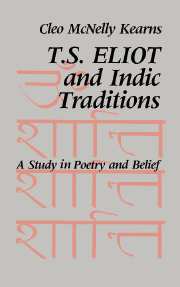1 - Tradition and the Individual Reader
Published online by Cambridge University Press: 07 October 2011
Summary
You don't really criticize any author to whom you have never surrendered yourself. Even just the bewildering minute counts; you have to give yourself up, and then recover yourself, and the third moment is having something to say, before you have wholly forgotten both surrender and recovery.
T. S. EliotPhilosophy is difficult unless we discipline our minds for it; the full appreciation of poetry is difficult for those who have not trained their sensibility by years of attentive reading. But devotional reading is the most difficult of all, because it requires an application, not only of the mind, not only of the sensibility, but of the whole being.
T. S. EliotMANY OF THE familiar techniques of modernism, particularly in the hands of Pound, Eliot, and Marianne Moore, serve not only to create fragmented, discontinuous, and disruptive poems but to include in them actual traces of the activity of reading. Through the incorporation of what look like study notes, glosses, and miscellaneous quotations and through the systematic deflection of attention from the work at hand to other texts, these poets accentuate reading as a process that is essential – perhaps more essential than romantic sensibility or eighteenth-century taste – to the composition and reception of poetry. Not since the metaphysicals have there been poets as determinedly erudite and as determined to make their erudition felt. “I shall have to learn a little greek to keep up with this,” Pound announced in the Cantos, “but so will you, drratt you.”
In terms of Eliot's work, Pound might as well have said Sanskrit or Pali.
- Type
- Chapter
- Information
- T. S. Eliot and Indic TraditionsA Study in Poetry and Belief, pp. 3 - 29Publisher: Cambridge University PressPrint publication year: 1987



